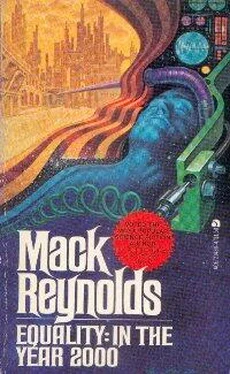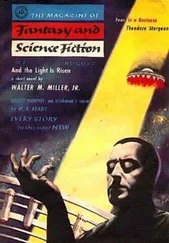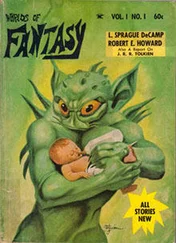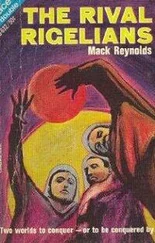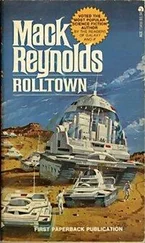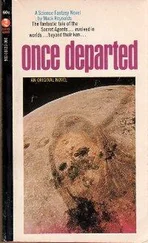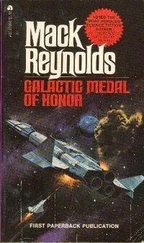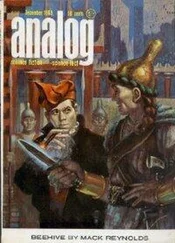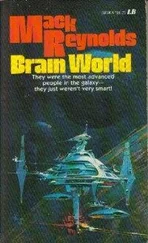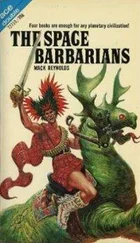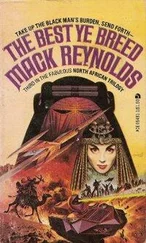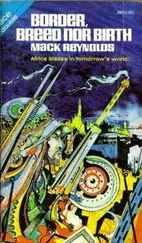Mack Reynolds - Equality - In the Year 2000
Здесь есть возможность читать онлайн «Mack Reynolds - Equality - In the Year 2000» весь текст электронной книги совершенно бесплатно (целиком полную версию без сокращений). В некоторых случаях можно слушать аудио, скачать через торрент в формате fb2 и присутствует краткое содержание. Год выпуска: 1977, ISBN: 1977, Издательство: Ace Books, Жанр: Фантастика и фэнтези, на английском языке. Описание произведения, (предисловие) а так же отзывы посетителей доступны на портале библиотеки ЛибКат.
- Название:Equality: In the Year 2000
- Автор:
- Издательство:Ace Books
- Жанр:
- Год:1977
- ISBN:0-441-21430-4
- Рейтинг книги:3 / 5. Голосов: 1
-
Избранное:Добавить в избранное
- Отзывы:
-
Ваша оценка:
- 60
- 1
- 2
- 3
- 4
- 5
Equality: In the Year 2000: краткое содержание, описание и аннотация
Предлагаем к чтению аннотацию, описание, краткое содержание или предисловие (зависит от того, что написал сам автор книги «Equality: In the Year 2000»). Если вы не нашли необходимую информацию о книге — напишите в комментариях, мы постараемся отыскать её.
Equality: In the Year 2000 — читать онлайн бесплатно полную книгу (весь текст) целиком
Ниже представлен текст книги, разбитый по страницам. Система сохранения места последней прочитанной страницы, позволяет с удобством читать онлайн бесплатно книгу «Equality: In the Year 2000», без необходимости каждый раз заново искать на чём Вы остановились. Поставьте закладку, и сможете в любой момент перейти на страницу, на которой закончили чтение.
Интервал:
Закладка:
“I see,” Julian said, not seeing at all. “And another example of Utopia in the past?”
Harrison thought for a moment, finally taking a sip of his drink.
“The Mayans, perhaps. They were on the scene possibly as early as 1500 B.C. One of their first cities, Tikal, in Guatemala, is also one of their most impressive. The temple of the Jaguar God is over one-hundred sixty feet, one of the highest and most beautiful of Mayan pyramids. Early in the game they reached an astonishingly advanced level of mathematics, having hit upon the zero many centuries before the Europeans had it; likewise in astronomy, in medicine, in architecture and other arts. As in the case of the Egyptians, they too had it made. Guatemala, Chiapas, and Yucatan are lush. Actually, the Mayans ate better than the Spanish at the time of the conquest. They, like the early Egyptians, had a tribal society, perhaps top-heavy with the priesthood, but the people were free. Slavery, as we know it, was unknown. Their fabulous pyramids, temples, and governmental buildings, such as the House of the Governors in Uxmal, were built by communal labor, during the months of the year not needed for agricultural work. It was, Mr. West, a Neolithic Utopia.” He paused and, without asking, dialed another Scotch for Julian.
“And so?” Julian prodded. He couldn’t get the drift. Sean had said these friends had wanted to talk about firsthand accounts of the mid-twentieth century. But here he was getting a rundown on ancient history.
Harrison went on. “One of their last cities, built shortly before the coming of the Spanish, was Mayapan. Mr. West, it was little, if at all, more advanced than Tikal. More than a thousand years earlier they had achieved a calendar more accurate than our own Gregorian, and had hit upon the zero, but where were their new advances? They had achieved a Neolithic Utopia and then they stopped. And for nearly two thousand years they remained stagnant.”
“I don’t think you’re getting through to me,” Julian said. “What’s the point?”
The other ignored him. “Now, the Incas were another thing. They too were a Neolithic people to begin with. Ambitious and aggressive, in a couple of centuries they had dominated the Cuzco valley, but it wasn’t until about 1440 A.D. that their power exploded. By 1493 they ruled from Quito, Ecuador, to the Rio Maule in Chile. Their art, particularly in metallurgy and textiles, has not been surpassed to this day. Their engineering of roads, bridges, and irrigation projects was superb. They worked copper, tin, bronze, gold, and silver and knew smelting, alloying, casting, inlaying, soldering, riveting, and incrustation. Their medicine too was higher than the level that prevailed in Europe at the time and their diet was superior. They had even taken to the sea and evidently had craft capable of crossing the Pacific, as noted in Hyderthal’s Kon Tiki experiment. However, the Inca civilization was no stagnant Utopia, Mr. West, but a vital, expanding, healthy society on its way into the future. In many respects it is a pity the Spanish arrived when they did with their superior weapons. It would have been historically interesting to see what the Incas could have accomplished.”
“Your point?” Julian said impatiently. His new drink had arrived and he began on it.
“My point is,” Harrison said, “that man cannot afford Utopia. Man is an aggressive, impatient, striving animal and has been since he issued forth from the caves to conquer his world. He cannot afford to hesitate, to speak of coming to a halt. If he does, he stagnates and eventually dies—as the Egyptian culture died, as the Mayan culture died.”
Sean O’Callahan and the quiet Ley nodded. “Yes,” Sean agreed. “A Utopia dies.”
Julian thought that possibly at last they were getting to the point of this meeting.
He said, “This particular Utopia doesn’t seem to be dying. It’s developing like crazy in all directions.”
Harrison shook his head. “No. Not as it should be. Ninety-eight percent of our population is not being utilized. They sit around doing make-work. Our civilization is stagnating, Mr. West.”
“Yeah,” Ley echoed. “Back in the 1960s and earlier, if somebody had it on the ball, he could fight his way to the top, make his mark on the world. Look at Hitler. Started off as a poor boy and fought his way up to be the most powerful man in the world. And he didn’t need any goddamned computers to tell him whether or not he could do it.”
Sean laughed lightly. “Not exactly the example I would use,” he said.
William Dempsey Harrison brought forth his transceiver and flicked the stud for the time. “I’m afraid I’m going to have to be running along.” He looked at Julian. “There’s quite a bit more I wanted to discuss with you, but perhaps you’ve got enough to reflect upon. Can we get together again?”
“Why, of course.” In actuality, Julian didn’t know exactly where he stood with this man, or how he felt about him. Obviously, the other wasn’t satisfied with the status quo. Thus far, Julian West had met only the Leetes, who were. He wouldn’t mind knowing a bit more about what was wrong with Utopia.
Harrison stood. “I’ll get in touch through Sean, here.” He hesitated. “Meanwhile, if you don’t mind, I’d appreciate it if you didn’t mention this conversation to any of the Leete family.”
Chapter Six
The Year 1968
The session with Harrison, Ley, and O’Callahan hadn’t left him feeling very balanced. On his return from the Cub Bar he had gone immediately to bed, only to have one of his worst nightmares ever.
Though all of the war dreams were bad, it was the worst. Certainly it was one of the longest. It invariably started at the same point and ended at the same point, and it always took long minutes to get over.
Captain Julian West returned to Fire Base 2224 in a slick (as the grunts called helicopters) that was large enough to hold six men. It was equipped with sliding doors on both sides. These were open so that the two gunners, who were strapped to either side, could lean out and fire their .30 caliber machine guns if required.
Julian had spent almost two weeks at the hospital in Truj Hoa and then pulled down another week of R R—rest and relaxation—in Bangkok. Actually, it had been only a minor wound but he was returning with a Bronze Star, a Purple Heart, and, of all things, the Vietnamese Cross of Gallantry; none of which he would bother to mention to his buddies, not particularly wanting to be laughed at.
The chopper swooped into the LZ, the helicopter landing zone for the fire base. The pilot didn’t bother to turn off the engine. Julian West took up his duffle bag, waved a brief good bye, and jumped to the ground. The usual cloud of whirling dust, pieces of paper, and dry sticks were being kicked up by the aircraft’s blades. He waded hurriedly through the dust as fine as a dark red talcum powder.
Three weeks hadn’t much changed Fire Base 2224, although they seemed to have thrown up more entrenchments and strung more wire. He wondered if Charlie was still giving them a hard time. The fire base was located on a hill in the jungle south of Cheo Reo and for the first month or so that the Americans had occupied it, the Viet Cong hadn’t been very active in the vicinity. The ambush in which he had been hit had come as a surprise.
There were twenty pieces of artillery and fifteen mortars, the latter of which looked like nothing so much as black stovepipes about three feet high. The artillery crews managed to keep the black guns spotless, in spite of the red dust, by endlessly wiping them with oil rags.
Julian made his way toward his billet. He didn’t know if the colonel would be on the hill or not, but he figured on leaving his bag and possibly cleaning up a little before reporting in. The bunkers were little more than big holes in the hillside, covered with logs and heaped high with sandbags. He assumed his billet which he shared with Lieutenant Chenowith, one of his subordinates, was still being retained for him.
Читать дальшеИнтервал:
Закладка:
Похожие книги на «Equality: In the Year 2000»
Представляем Вашему вниманию похожие книги на «Equality: In the Year 2000» списком для выбора. Мы отобрали схожую по названию и смыслу литературу в надежде предоставить читателям больше вариантов отыскать новые, интересные, ещё непрочитанные произведения.
Обсуждение, отзывы о книге «Equality: In the Year 2000» и просто собственные мнения читателей. Оставьте ваши комментарии, напишите, что Вы думаете о произведении, его смысле или главных героях. Укажите что конкретно понравилось, а что нет, и почему Вы так считаете.
